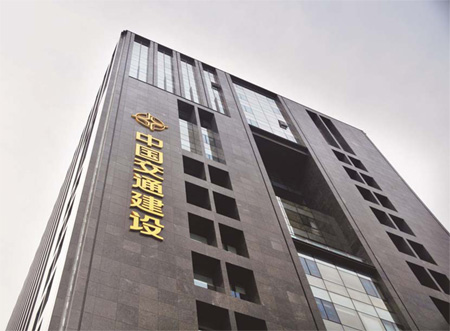Time to tread a cautious path
Updated: 2011-12-09 08:37
By Li Jiabao (China Daily)
|
|||||||||||
|
The headquarters of China Communications Construction Co Ltd in Beijing. [Photo / China Daily] |
Risk awareness and management must be strengthened following recent political unrest
Risk evaluation and prevention mechanisms are vital to reduce losses from political and economic upheavals in Africa, even as the continent remains a major investment destination for Chinese companies, according to experts.
Chen Mo, deputy director in the Institute of West Asian and African Studies at the Chinese Academy of Social Sciences, feels that Africa is an important investment destination for China and "in the long term, Chinese enterprises which are expanding their overseas business will heavily rely on advantages like low labor costs and technical expertise".
Last year, Africa was China's fourth largest outbound investment destination with investments to the tune of $16 billion. The government has been encouraging and supporting more domestic small and medium enterprises to go abroad for trade and investment purposes and this has also given a fillip to Sino-Africa trade. The trade volume between China and Africa is estimated to exceed $150 billion this year and reach $300 billion in the next two or three years.
Chen feels that it is important for domestic enterprises to learn from the recent unrest in North Africa and the Middle East and enhance their risk awareness and risk management.
"Chinese enterprises should research and evaluate the political risks of countries and regions where they invest heavily. An information sharing platform is needed to strengthen the connection between the government, enterprises and research institutions. In some cases, research institutions can go abroad for risk evaluations and studying the economic development trends before enterprises plan their investments," she said.
Li Guofu, director of the center for Middle East studies in China Institute of International Studies, agrees with Chen on enhancing enterprises' risk awareness and feels that contingency plans need to be formulated in advance.
"Chinese overseas investment covers the Middle East, Africa and Latin America, regions prone to social unrest and uprisings. For enterprises, it is necessary to realize the probability of risks and come up with a thorough risk prevention plan dedicated to ensure employees' safety primarily and reduce the risks maximally," he said.
In addition to having equipment like satellite phones readily available and creating employee emergency manuals, Chen says that "enterprises' localization, including establishing friendship with locals and seeking support from local tribes, is a good way to avoid risks".
Wu Fang, a senior researcher on African issues at the Chinese Academy of International Trade and Economic Cooperation affiliated to the Ministry of Commerce, also believes that enterprises must improve risk management through sufficient research and preparation before overseas investments to fend against possible losses.
The unrest in North Africa and Middle East has been bad for several Chinese enterprises, especially in Libya where Chinese are not too sure about future prospects, said Chen.
Data from the Ministry of Commerce showed that as of May 2011, 75 Chinese enterprises contracted 50 projects worth $18.8 billion in areas of infrastructure, telecom, real estate and petrochemical industry. However, among 13 State-owned enterprises, only 5.6 percent of the projects contracted in Libya was covered by insurance, according to data from China Economic Herald.
Although officials from the ministry hold that "now it is not an opportune time for Chinese companies to go back and invest in Libya" owing to uncertainties in the post-war era, experts suggest research and pilots of project contracting in steady areas.
"It will still take some time for Libya to reach a steady situation, but Chinese enterprises can tentatively start some projects in areas like Benghazi where situation is quite steady and civil projects, like housing, highway and water supply, are in urgent need," Li said.
For companies that are researching the possibilities of returning to Libya for postwar reconstruction, risk evaluation and prevention have topped all other factors.
"Under the current situation, no matter how much they pay us, no matter how attractive the payback is, our company will not risk the life of our employees and return to Libya," Zhang Baozhong, deputy director in charge of overseas projects at China Communications Construction Co Ltd, said in an interview with Economic Information.
China Communications Construction Co Ltd had contracted projects worth more than $2 billion in areas of residential housing, highway, bridges and plumbing in Libya. But due to the turmoil, it had to repatriate over 5,000 Chinese employees in March and halt all of its projects in Libya.
Du Shengxi, spokesman for the company, said though the company has engineering insurance it is not sure whether it would get any compensation for the losses incurred in Libya.









